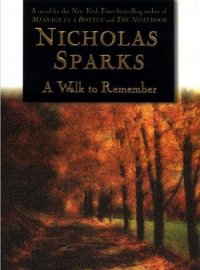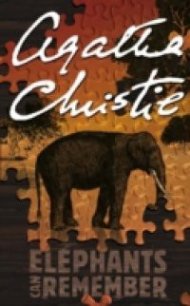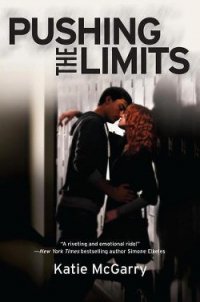Winter Fire - Landis Geoffrey Alan (читать книги полные .txt) 📗
It is impossible to describe the Salzburg feeling, the aura of a sophisticated ancient city, wrapped in a glisteningly pure blanket of snow, under siege, faced with the daily onslaught of an unseen army that seemed to have an unlimited supply of coilguns and metastable hydrogen. We were never out of range. The Salzburg stride was relaxed only when protected by the cover of buildings or specially constructed barricades, breaking into a jagged sprint over a stretch of open ground, a cobbled forecourt of crossroads open to the rifles of snipers on distant hills firing hypersonic needles randomly into the city. From the deadly steel birds, there was no protection. They could fly in anywhere, with no warning. By the time you heard their high-pitched song, you were already dead, or, miraculously, still alive.
Not even the nights were still. It is an incredible sight to see a city cloaked in darkness suddenly illuminated with the blue dawn of a flare sent up from the hilltops, dimming the stars and suffusing coruscating light across the glittering snow. There is a curious, ominous interval of quiet: the buildings of the city dragged blinking out of their darkness and displayed in a fairy glow, naked before the invisible gunners on their distant hilltops. Within thirty seconds, the birds would begin to sing. They might land a good few blocks away, the echo of their demise ringing up and down the valley, or they might land in the street below, the explosion sending people diving under tables, windows caving in across the room.
They could, I believe, have destroyed the city at any time, but that did not serve their purposes. Salzburg was a prize. Whether the buildings were whole or in parts seemed irrelevant, but the city was not to be simply obliterated.
In April, as buds started to bloom from beneath the rubble, the city woke up, and we discovered that we had survived the winter. The diplomats proposed partitioning the city between the Slavs and the Germans-Asians and other ethnic groups, like me, being conveniently ignored-and the terms were set, but nothing came of it except a cease-fire that was violated before the day was over.
The second summer of the siege was a summer of hope. Every week we thought that this might be the last week of the siege; that peace might yet be declared on terms that we could accept, that would let us keep our city. The defense of the city had opened a corridor to the outside world, allowing in humanitarian aid, black-market goods, and refugees from other parts of the war. Some of the people who had fled before the siege returned, although many of the population who had survived the winter used the opportunity to flee to the west. My foster father, though, swore that he would stay in Salzburg until death. It is civilization, and if it is destroyed, nothing is worthwhile.
Christians of the Tenth Crusade and Turks of the Islamic Federation fought side by side with the official troops of the Mayor’s Brigade, sharing ammunition but not command, to defend the city. High above, cities in the sky looked down on us, but, like angels who see everything, they did nothing.
Cafes opened again, even those that, without black-market connections, could only serve water, and in the evenings there were night-clubs, the music booming even louder than the distant gunfire. My foster father, of course, would never let me stay up late enough to find out what went on in these, but once, when he was away tending his molecular still, I waited for darkness and then crept through the streets to see.
One bar was entirely Islamic Federation Turks, wearing green turbans and uniforms of dark maroon denim, with spindly railgun-launchers slung across their backs and knives and swords strung on leather straps across their bodies. Each one had in front of him a tiny cup of dark coffee and a clear glass of whisky. I thought I was invisible in the doorway, but one of the Turks, a tall man with a pocked face and a dark moustache that drooped down the side of his mouth, looked up, and without smiling, said, "Hoy, little girl, I think that you are in the wrong place."
In the next club, mercenaries wearing cowboy hats, with black uniforms and fingerless leather gloves, had parked their guns against the walls before settling in to pound down whisky in a bar where the music was so loud that the beat reverberated across half the city. The one closest to the door had a shaven head, with a spiderweb tattooed up his neck, and daggers and weird heraldic symbols tattooed across his arms. When he looked up at me, standing in the doorway, he smiled, and I realized that he had been watching me for some time, probably ever since I had appeared. His smile was far more frightening than the impassive face of the Turk. I ran all the way home.
In the daytime, the snap of a sniper’s rifle might prompt an exchange of heavy machine-gun fire, a wild, rattling sound that echoed crazily from the hills. Small-arms fire would sound, tak, tak, tak, answered by the singing of small railguns, tee, tee. You can’t tell the source of rifle fire in an urban environment; it seems to come from all around. All you can do is duck, and run. Later that summer, the first of the omniblasters showed up, firing a beam of pure energy with a silence so loud that tiny hairs all over my body would stand up in fright.
Cosmetics, baby milk, and whisky were the most prized commodities on the black market.
I had no idea what the war was about. Nobody was able to explain it in terms that an eleven-year-old could understand; few even bothered to try. All I knew was that evil people on hilltops were trying to destroy everything I loved, and good men like my foster father were trying to stop them.
I slowly learned that my foster father was, apparently, quite important to the defense. He never talked about what he did, but I overheard other men refer to him with terms like "vital" and "indispensable," and these words made me proud. At first I simply thought that they merely meant that the existence of men like him, proud of the city and vowing never to leave, were the core of what made the defense worthwhile. But later I realized that it must be more than this. There were thousands of men who loved the city.
Toward the end of the summer, the siege closed around the city again. The army of the Tenth Crusade arrived and took over the ridgetops just one valley to the west; the Pan-Slavic army and the Orthodox Resurgence held the ridges next to the city and the territory to the east. All that autumn the shells of the Tenth Crusade arced over our heads toward the Pan-Slavs, and beams of purple fire from pop-up robots with omniblasters would fire back. It was a good autumn; mostly only stray fire hit the civilians. But we were locked in place, and there was no way out.
There was no place to go outside; no place that was safe. The sky had become our enemy. My friends were books. I had loved storybooks when I had been younger, in the part of my childhood before the siege that even then I barely remembered. But Johann had no storybooks; his vast collection of books were all forbidding things, full of thick blocks of dense text and incomprehensible diagrams that were no picture of anything I could recognize. I taught myself algebra, with some help from Johann, and started working on calculus. It was easier when I realized that the mathematics in the books was just an odd form of music, written in a strange language. Candles were precious, and so in order to keep on reading at night, Johann made an oil lamp for me, which would burn vegetable oil. This was nearly as precious as candles, but not so precious as my need to read.
A still, I had learned from my reading-and from the black market-was a device for making alcohol, or at least for separating alcohol from water. Did a molecular still make molecules?
"That’s silly," Johann told me. "Everything is made of molecules. Your bed, the air you breathe, even you yourself, nothing but molecules."




